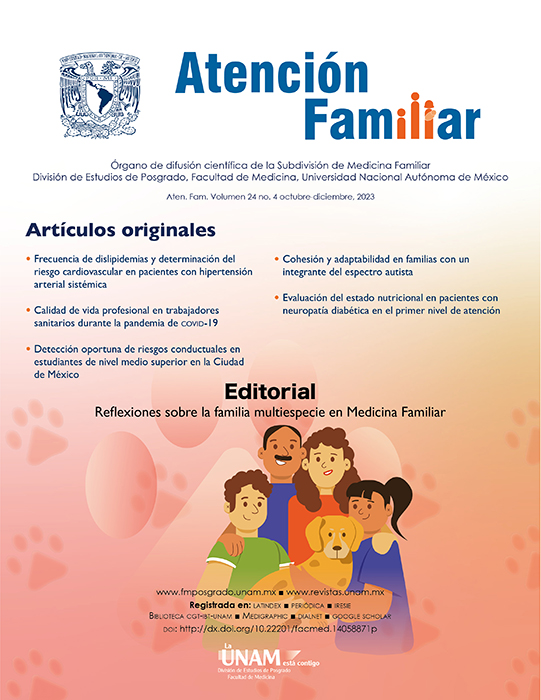Detección oportuna de riesgos conductuales en estudiantes de nivel medio superior en la Ciudad de México
Contenido principal del artículo
Resumen
Objetivo: evaluar el riesgo de problemas conductuales en estudiantes adolescentes de la Ciudad de México. Métodos: estudio transversal analítico, participaron 432 adolescentes del Colegio de Ciencias y Humanidades (CCH), a los cuales se les aplicó el instrumento POSIT (Problem Oriented Screening Instrument for Teenagers), éste mide el riesgo de problemas conductuales en adolescentes, a través de siete dimensiones: uso/abuso de drogas, salud mental, relaciones familiares, relaciones con amigos, nivel educativo, interés laboral y conductas agresivas-delincuenciales. Para valorar si existieron diferencias entre hombres y mujeres (por dimensión) se utilizó la prueba t de Student.
Resultados: de los 432 estudiantes, 55.9% fue del sexo femenino. De la totalidad de participantes, 42.3% estaba cursando el segundo semestre, 34.6% el cuarto y 23.1% el sexto. Al realizar el análisis de las dimensiones de acuerdo con el sexo, se encontraron diferencias estadísticamente significativas a favor de las mujeres en el área de la salud mental (p= 0.022). En el caso de los hombres fueron dos áreas: relaciones con amigos (p= 0.001) e interés laboral (p=0.0000).
Conclusión: la salud mental, las relaciones entre amigos y el interés laboral son algunas de las áreas más afectadas en el grupo estudiado; no obstante, aspectos como los familiares y los relacionados con conductas agresivas/delincuenciales siguen siendo detonantes de comportamientos de riesgo.
Descargas
Detalles del artículo
Citas en Dimensions Service

Esta obra está bajo una licencia internacional Creative Commons Atribución-NoComercial-SinDerivadas 4.0.
